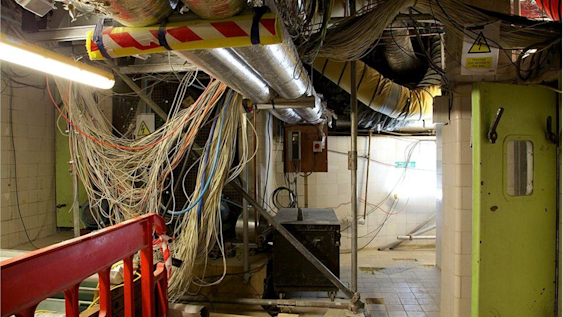
Has Devolution Delivered for Women?
This 2010 report reviewed women’s representation in the Scottish Parliament and Welsh Assembly a decade after devolution. The report concluded that the battle for women’s equal representation in Edinburgh and Cardiff was far from won, and that urgent further action was needed to ensure that the progress of the previous decade would be sustained in the next.
The establishment of the Scottish Parliament and Welsh Assembly was accompanied by hopes of a ‘new politics’, involving, among other things, significantly higher women’s representation than at Westminster. In the first elections to the devolved legislatures in 1999, 37% of seats in Edinburgh and 40% in Cardiff were won by women. But in the 2007 elections, the proportion of women in the Scottish Parliament fell to 33%, and even in Wales the number of women constituency candidates declined. By 2010 there were concerns that the 2011 devolved elections would see progress stalling further.
In light of these trends, British Council Scotland commissioned Has Devolution Delivered for Women? to reflect on women’s representation in the Scottish Parliament and Welsh Assembly, ten years after the devolved legislatures were first elected and 20 years after the report of the Hansard Society Commission on Women at the Top. The report, by Joyce McMillan and Ruth Fox, investigated trends in women’s representation in the Scottish Parliament and Welsh Assembly, analysed drivers of and obstacles to progress, and explored women’s impact on policy and the culture of politics in Scotland and Wales.
Key findings
Voluntary action by political parties is not enough. The progress it delivers is vulnerable both to change within key parties and to the shifting balance of power between them. There is therefore a case for reopening the debate about whether equal representation of women should be guaranteed by constitutional and electoral law, rather than purely by action within parties. An inquiry similar to the Speaker’s Conference on Parliamentary Representation held at Westminster in 2008-10 is needed in Scotland and Wales to look in detail at the issues and make recommendations.
Given the apparently strengthening media tendency to present politics as a theatre of conflict and personal destruction, a case can also be made for a new ‘King Report’ on gender and the media in politics, along the lines of Sir Anthony King’s Report on the BBC’s coverage of the devolved institutions, to explore how current assumptions about newsworthiness affect perceptions of women politicians and their work.
There has been a change in culture towards a ‘new politics’ in Edinburgh and Cardiff, in terms of less confrontational and less party-bound ways of working. But there is a growing perception that Holyrood, in particular, is increasingly reverting to Westminster-style confrontational politics. The debate about how to avoid this needs to be reopened.
The dramatic increase in women’s representation at the dawn of devolution was achieved through strong, well-organised campaigning across a range of parties and organisations. The time has come to start rebuilding these alliances within Scotland and Wales, across the UK and internationally. To support a new campaign there is a need especially for structures and institutions which enable dialogue among women across the generations – for example, the idea of a Women’s Centre close to the Scottish Parliament was proposed in 1999 but did not come to fruition, and should be revisited.
Table of contents
- Preface
- Introduction
- Part 1: Changing Numbers: Women’s Representation in Scotland and Wales
- Part 2: Changing Politics, Changing Culture: Women at Work in the Devolved Legislatures and Civil Society
- Conclusion
- Appendix 1: Election Results 1999-2007
- Appendix 2: Seminar Attendees - 25 January 2010
Enjoy reading this? Please consider sharing it
Latest

Compendium of Legislative Standards for Delegating Powers in Primary Legislation
The scope and design of the delegation of legislative powers in any Bill affects the long-term balance of power between…Parliament and Government. The House of Lords Delegated Powers and Regulatory Reform Committee (DPRRC) scrutinises all such delegation. This report distils standards for the delegation of powers from 101 DPRRC reports from 2017 to 2021.

Genetically modified organisms: Primary or delegated legislation?
A Statutory Instrument comes into force on 11 April that changes the legal requirements for the release of certain types… of genetically modified plants. Some argue that the changes should have been made by primary, rather than delegated, legislation. Where does the boundary between the two lie?

Constitution and Governance in the UK: Parliament and Legislation
The Brexit process, the pandemic and the approach of the Johnson Government have all tended towards Parliament’s margina…lisation and the accretion of executive power. For UK in a Changing Europe’s report on the constitutional landscape, we show how – in the legislative process and control of public money and executive action, including delegated legislation.

What role does the UK Parliament play in sanctioning an individual? [Video]
Sanctions are imposed on an individual in two stages - by Ministers first making regulations and secondly designating th…e individual, using a power in those regulations. Parliament has a role in the first stage, but not the second.

Written evidence to the House of Commons Public Accounts Committee: the Restorat…ion and Renewal of Parliament
Our submission to the Public Accounts Committee highlighted the financial and practical challenges that MPs face in deci…ding the fate of Parliament’s Restoration and Renewal programme. We particularly questioned the viability of the proposal to continue operating the House of Commons Chamber in the middle of a building site.

Written evidence to the House of Commons European Scrutiny Committee: Retained E…U Law: Where next?
Our submission to the House of Commons European Scrutiny Committee inquiry into retained EU law (REUL) placed the issue…in the context of our Delegated Legislation Review. It discussed REUL’s diversity and amendment; the people and organisations to whom REUL amendment may matter; and parliamentary scrutiny of delegated legislation arising from amending REUL.